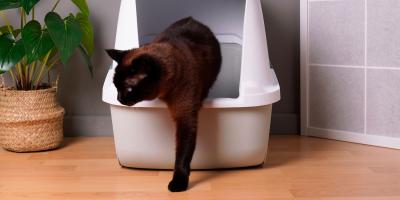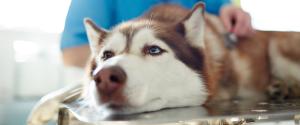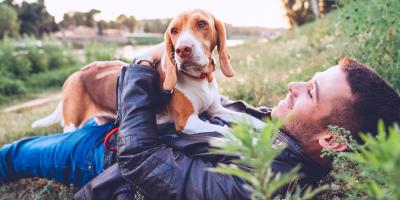
It's quite common for dogs to develop hernias, and in puppies, it’s even more likely. A hernia occurs when contents from the dog’s abdomen push through a hole or tear in the fatty tissue or muscle wall in the region. Nine out of 10 cases of hernia in dogs are caused by genetic predisposition, with many puppies born with the condition. Still, being struck by a car or some other trauma can also cause your dog to develop a hernia.
How severe a hernia is in your dog — and thus, how complicated or uncomplicated — largely depends on where the hernia is located. Some hernias are of little to no concern; others pose a risk to your dog’s life.
Congenital or Non-Congenital
Five common types of hernias are found in dogs. These hernias vary widely in severity and are classified as either congenital or non-congenital. Congenital hernias are those that are present when the dog is born. Non-congenital hernias develop due to some form of trauma. The five types of common hernias in dogs include:
Umbilical hernias
The most common of all dog or puppy hernias, this hernia is visible on the outside of the dog’s belly, near its belly button — it's a protrusion from the area that feels a tad squishy. An umbilical hernia may heal on its own or may require surgical repair. Some owners choose to have their dog’s umbilical hernias repaired at the same time they're neutered.
Inguinal hernias
A hernia located where the inner fold of the dog’s back leg attaches to their body, in the groin area, is known as an inguinal hernia. This type of hernia can vary in size. Large inguinal hernias pose a problem to a dog’s life if they become big enough to trap parts of the uterus or bladder. Inguinal hernias are mostly seen in middle-aged female dogs and more often when these dogs are pregnant.
Diaphragmatic hernias
A type of congenital hernia, a diaphragmatic hernia is due to a hole in the dog’s diaphragm, the muscle that divides the dog’s abdomen and chest. A diaphragmatic hernia allows your dog’s vital organs to protrude into the dog’s chest cavity, resulting in breathing problems.
Perineal hernias
This type of hernia is non-congenital and develops due to a rip in the pelvic muscles that allow the contents of the abdomen to protrude. Unneutered dogs over the age of five are more prone to perineal hernias than other dogs. Collies, boxers, Boston terriers and Welsh corgis are also more apt to develop this type of hernia.
Hiatal hernias
Although it can be congenital, a hiatal hernia may also occur due to trauma or injury. This hernia occurs in the diaphragm region, often becoming so big that it allows the stomach to protrude into the dog’s chest cavity and sometimes slip back and forth between the abdomen and the chest. Hiatal hernias are most common in brachycephalic breeds, including English bulldogs, where pressure that results from these breeds’ crushed airways can pull the stomach through the diaphragmatic opening.
Hernia Symptoms in Dogs
Although the most obvious sign of a hernia is a visual one — you see the hernia protrusion — there are other signs your dog may be suffering from a hernia. Look for loss of appetite, vomiting, cramping, high fever and numbness of the legs. Lethargy, shortness of breath, excess drooling and swelling are additional signs of hernia in dogs.
Dog Hernia Diagnosis and Treatment
A vet can make an official hernia diagnosis. While some hernias are visible, not all are, so if your dog is experiencing signs such as vomiting that point to a hernia, the vet may wish to do a physical exam to feel for the hernia. X-ray or ultrasound studies may also be done to help rule out or confirm the presence of a hernia in your dog. In addition, an abdominal ultrasound may be used to determine the severity of the hernia and the entrapment it causes.
Hernias in dogs are generally 100 percent treatable with just a simple surgical procedure that returns the contents of the abdomen back where they go and repairs the hole. Receiving timely treatment for hernia issues is important since it's not common for dogs to outgrow most hernias and they usually don’t heal on their own. Hernias that are left unchecked and untreated can cause your dog a lot of unnecessary pain and even lead to life-threatening complications.
Preventing hernia in dogs is not always possible, since many puppies are born with hernias. However, you can reduce your dog’s risk of developing a hernia if you have them neutered or spayed. And if your dog has a congenital hernia, it's generally advisable to avoid allowing the dog to breed, since chances are good that your dog will pass this same hernia issue on to any offspring.
Related articles



